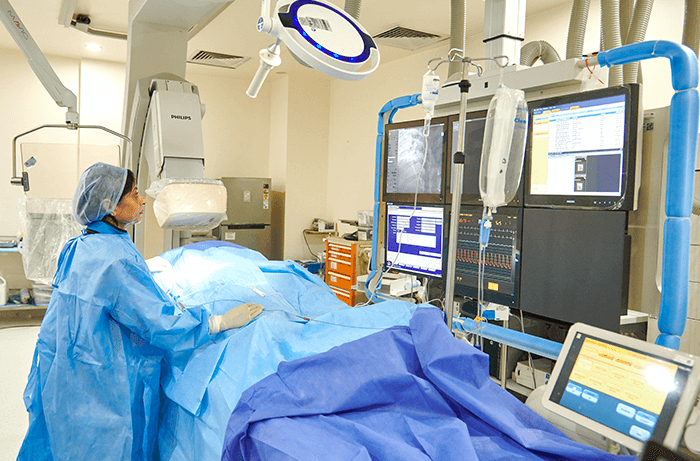×
Select Your Country
 International
International

×
Select Your Country
 International
International


A cardiac device is implanted under the skin of your chest or abdomen to control heartbeat disorders. A cardiac device such as a pacemaker or an implantable cardioverter-defibrillator (ICD) is recommended if you have had a ventricular arrhythmia (irregular heartbeat), a heart attack, or a congenital heart disease.
Pacemaker, which is a commonly used cardiac device, is implanted under the skin of the chest to stimulate the heart to beat normally and avoids heart rhythm disorders. A pacemaker contains a tiny computer and a battery connected to flexible, insulated wires (leads). It produces mild electrical shocks that keep the heart beating at a normal pace. Pacemaker implantation is performed under local anaesthesia and the procedure lasts for an hour or less. The patient may be required to stay overnight in the hospital and will be discharged the next day.
An implantable cardioverter-defibrillator (ICD) is a battery-operated device that prevents cardiac arrest or heart attack in patients who are higher-risk for heart attack. This device will send mild electric shock if your heart is beating too fast or too slow and will restore a normal heartbeat. It can store information about the time and the number of electrical shocks delivered to the heart to correct arrhythmia. Most ICD are also fitted with pacemakers to keep the heart beating steadily.